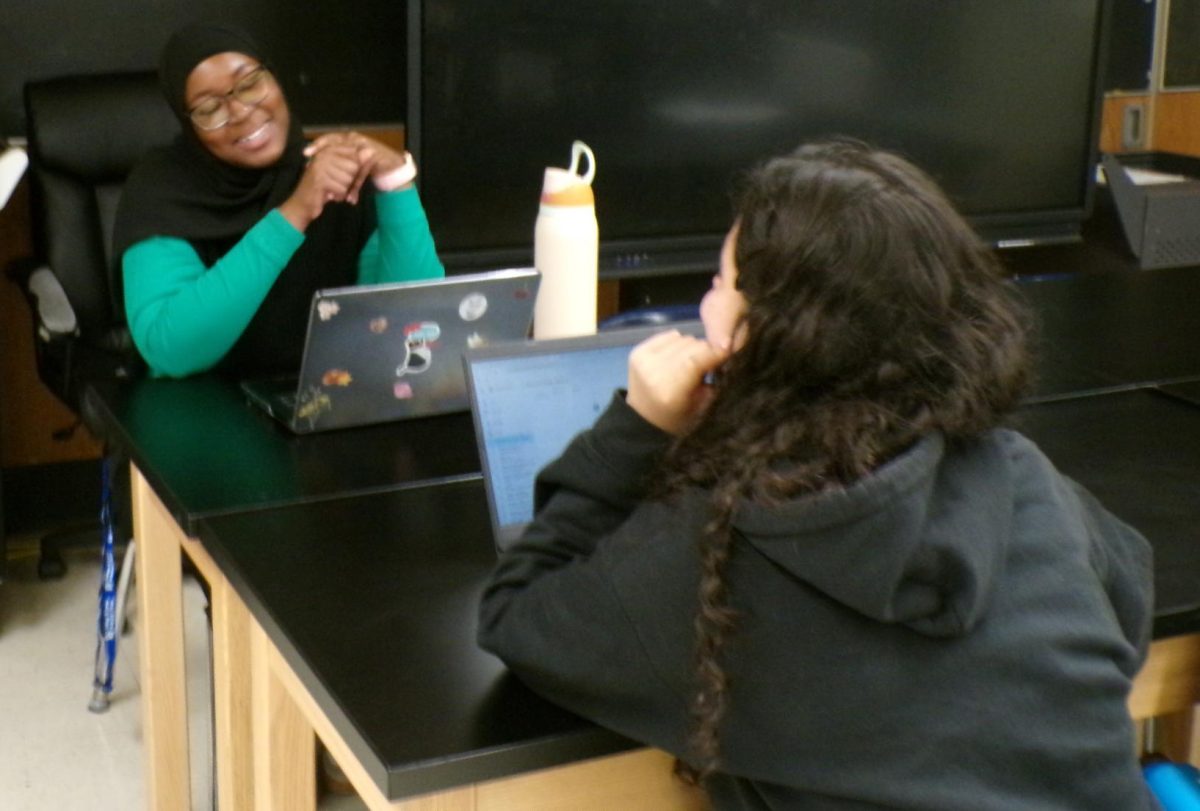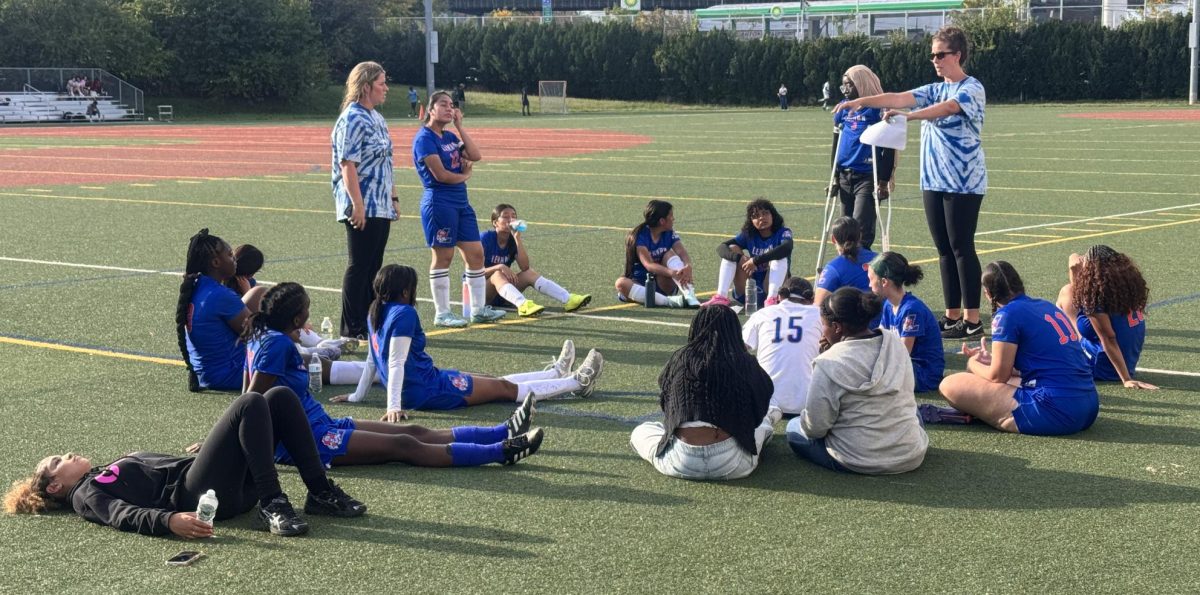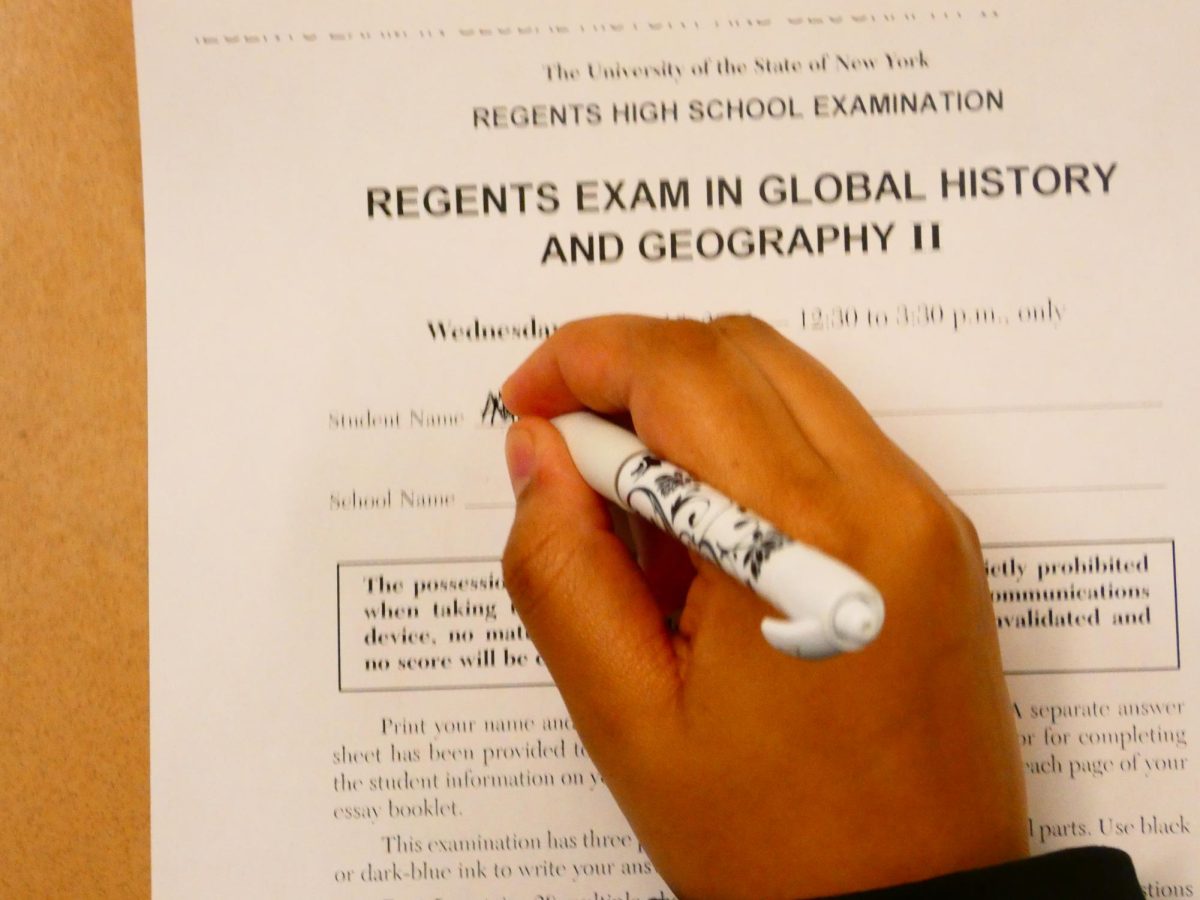Starting in the 2027-2028 school year, students may no longer have to pass five Regents exams to graduate from high schools in New York state. Current graduation requirements require most graduating students to pass five Regents exams. But the New York State Education Department is considering dropping the Regents requirement, leaving many to wonder what comes next.
“I am excited to see what other testing options they come up with,” said Stephanie DeCicco, the Global History teacher who prepares 10th grade students for a Global Regents exam.
The Regents have been around for years, the first test dating back to November of 1865. These tests were put in place to evaluate the quality of student learning.
But the existing Regents requirements can create graduation roadblocks for students, especially those who struggle with test anxiety or who transfer to New York as upperclassmen.
Consider Bryanna Seignious, a senior who moved from Georgia to New York in the middle of her junior year. To graduate, the state requires her to pass a science, math, social studies and ELA exam. So far, she’s passed two of four required exams.
“I think the Regents are important for the school, but it shouldn’t have to do with graduating,’’ she said. “ I can’t graduate without passing these Regents.”
She is preparing for the two remaining Regents, and hopes she can pass in time to graduate in June.
Senior counselor Jiovani Almonte thinks students should try their best on the Regents, even if they aren’t required, so their college applications look as good as possible. He predicts the Regents will be replaced by an aptitude test or portfolios that showcase student learning.
Even if not required, the Regents most likely would continue to be an option.
“In the event that Regents exams are phased out of graduation requirements, students would still be able to use Regents as one way to graduate,” said Onika Richards, the Deputy Press Secretary of NYC Public Schools.
Although Richards cannot speak on the impact the change may have on college admissions, she says tests similar to what grades third through eighth take may be offered instead. These tests typically focus on English Language Arts and Mathematics.
Anna Maria Jack, the Earth Science and Space teacher, has mixed feelings about dropping the Regents requirements. “A challenge that can arise for students is students not caring about their grades because there are no tests at the end of the year,” she said. With no Regents, she fears students will not feel the need to retain the information being taught, leading to poor performances and grades.
She also wonders how teachers will track students’ learning. “How will we know whether or not students are learning?’’ she asked. “ It might be more work for teachers because they may need to create portfolios for students; it also might be more work to create or document everything they do for the year.”
DeCicco shares similar concerns “What qualification will now be put in place?’’ she asked. “If not communicated well enough, I fear that students will not take classes seriously enough; they will have more absences, will lack motivation ….. and they won’t be able to maintain expectations.”
“My main concerns are standards dropping, Regent standards (graduate-ready),” she said. “If they get rid of it, will we produce high school graduates who think for themselves?”
Even so, DeCicco sees potential benefits to having more freedom to teach topics not directly related to Regents exams. “I can teach lots of different students lessons so they feel better connected to Global, which will give them an economical view, and if I’m not held to a standard I would bring in different stories,’’ she said.
One negative she isn’t fond of is potentially having to write a new curriculum. Other than that, she’s looking forward to seeing what new opportunities this change will bring.





























